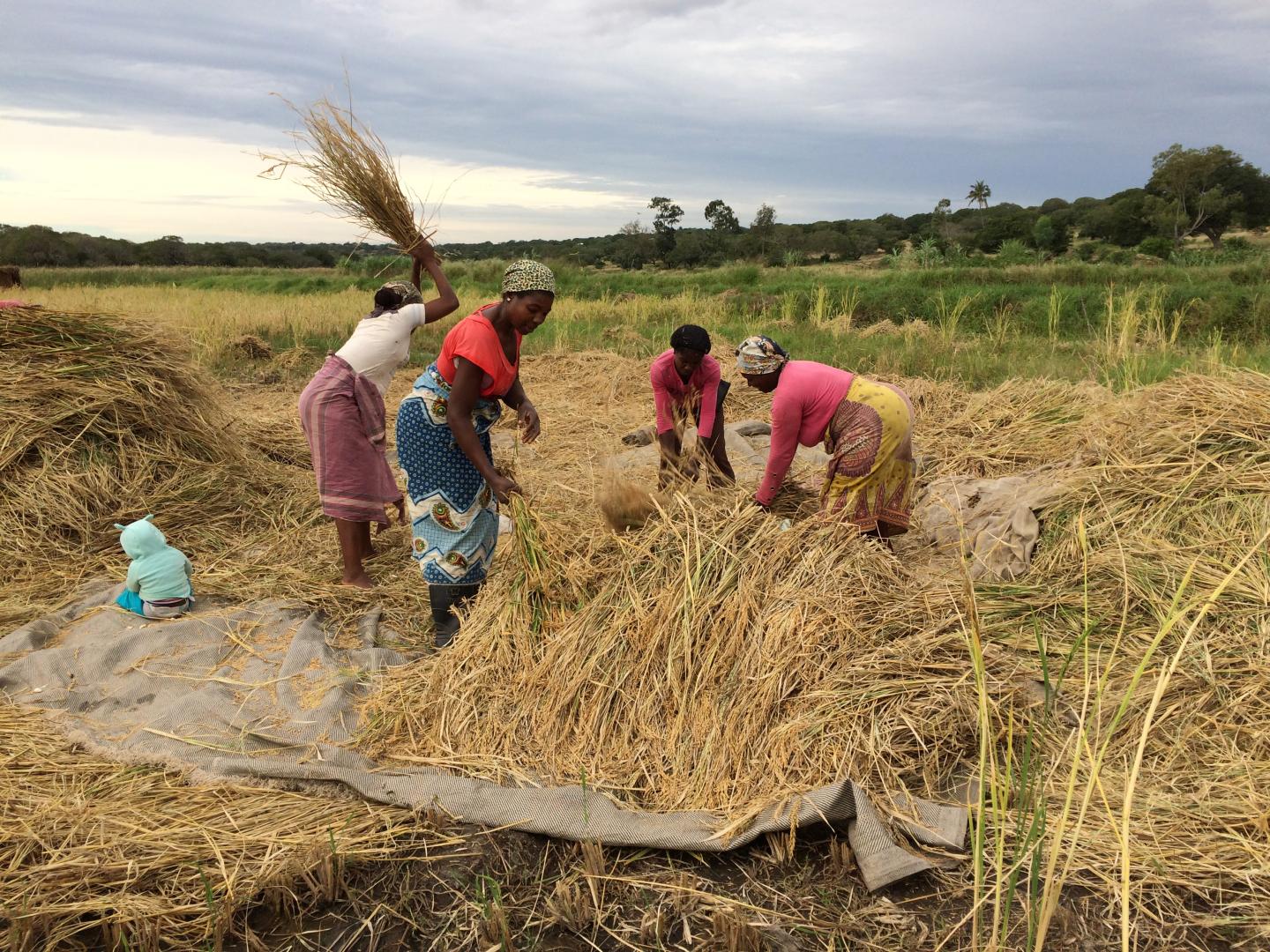Projet d’appui à l’Autonomisation Économique des Femmes rurales du Mozambique (PAEF)

Cooperative Development Organisation
Implementing Partners and Organisations
Ministry of Labor, Gender and Social Action (MTGAS)
Ministry of Finance (MF)
Ministry of Economy (ME)
Period of Implementation
Geographic scope
Africa: Mozambique
Cities:
5 districts in 2 different provinces:
Province of Maputo: Marracuene and Manhiça
Province of Gaza: Chokwe, Guija and Manjacaze
Budget
Donor(s)
Bilateral Aid: Global Affairs Canada
Foundations: Fondation Internationale Roncalli, Communauté Mariannhill, Fondation Socodevi
Sector(s)
Type of Activity
Summary
The PAEF Project in the districts along the south-north road axis in the provinces of Maputo and Gaza in Mozambique will benefit over 15,000 people, and ultimately improve the economic empowerment of 2,500 women and girls who are members of agricultural associations linked to the National Peasant Union (União Nacional de Camponeses, UNAC).
The PAEF adopts a multidimensional approach that links the constraints women and girls face in carrying out income-generating activities (IGAs) adapted to climate change, their lack of power and control over economic resources, and their vulnerability to certain risk factors linked to sexual and reproductive health (SRH). To increase its impact, PAEF involves members of the targeted communities, notably in its awareness-raising programs on SRH issues, which will focus on risky sexual behavior and HIV/AIDS, early marriage and pregnancy, and the importance of girls' education.
The aim is to combine economic efforts through the establishment of profitable agricultural crops with socio-cultural efforts to bring about changes in the behavior of women, girls, men and boys. To generate these changes, the project partners with recognized local organizations. Agri-food activities are stimulated by an agroforestry crop experimentation program and the delivery of field-school training courses focusing on climate-smart agriculture.
Project Objectives
Ultimate outcome: Improved economic empowerment of women, especially young women, in the rural areas of Maputo and Gaza provinces in Mozambique
Intermediate outcomes:
1100 Increased access, use and control by women members of agricultural associations in Maputo and Gaza Provinces on economic and productive resources in the context of climate change
1200 Enhanced performance by UNAC and its affiliated associations in delivering competitive products and services to meet the needs of women, especially young women, and the challenges of climate change in Maputo and Gaza provinces
1300 Improved stakeholder practices in strengthening agricultural associations and economic empowerment of women, especially young women, in Maputo and Gaza provinces
Immediate outcomes:
1110 Increased capacity of women, especially young women, to engage in new income-generating agricultural activities that take climate change adaptation into account
1120 Increased capacity of women, especially young women, in leadership, economic resource management and decision-making in SRHR
1210 Increased ability of elected officials, managers, and members (women and men) to implement good practices of governance, administrative, financial, and environmental management
1220 Developed capacity of UNAC and its affiliated associations to build a competitive and sustainable cooperative enterprise that meets the needs of women, especially young women, and the challenges of climate change
1310 Enhanced stakeholder capacity to promote the cooperative model from the perspective of women’s economic empowerment, especially young women, as well as adaptation to climate change
Impact on SDGs
Main Indicators
Women's Empowerment Index (IEM)
Number of people (m/f) sensitized to women's economic empowerment
Number of entrepreneurs, farmers and smallholders (m/f) benefiting from financial and/or business development services
Number of people (m/f) reached who support women's leadership in governance decision-making
Impact Measurement
Direct beneficiaries
Organisations: 45
Individuals: 3000